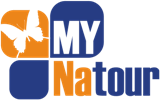I spent two and half amazing months living, working (wwoofing), and traveling through Alaska. There are many small communities where residents help each other out as well as the travelers. When you travel by land and show respect for the land, locals welcome you. Alaska truly is the last frontier. One can still work for trade or barter just like back in the day. People seem to have a handful of useful skills: fishing, building, hunting, cooking, making knives, making wine, taking care of boats, etc. In AK, people live more simply, enjoy nature, and are content with their lives. They are here because they want to be here. It’s a contagious feeling and I see why many travelers end up staying here. But I can’t imagine living here in winter; it is definitely a harder lifestyle. As one local told me, “the good is good and the bad is bad.”
In July 2011, I wwoofed with a couple on their sustainable island, Shelter Island, which is 20 minutes off of Juneau. Wwoofing is a volunteer program (wwoof.org) where you contact a “farm” that interests you. If they accept you, they provide you room and board in exchange for five to six hours work a day (they all vary). I always worked in an office and wanted a different work experience while living more sustainably. Rick, my wwoofing host, greeted me at the Juneau ferry terminal with a big hug. We drove to the marina, got into his skiff, put the bags in bins, wrapped one with tarp to protect them from the sea water, changed into rubber boots then off we went.
Rick and his wife Karen ran a small fishing boat business and lodge, which ended two years ago due to health issues. They attended college courses (without getting a degree) to run their business and build their home efficiently. They installed solar panels and a wind turbine and even have plumbing in their house. Wind and solar energy were huge investments that they did gradually, but believe it paid off in the long run. They invested in a rain gauge reader that is wireless connected to a device in the house. It reports how much rain has fallen in that area, the direction of the wind, and sea knots. Rick commutes once a week to Juneau to get supplies and get the mail, even during the cold and dark winter. Boating in Alaska is serious business; the ocean can change quickly and many lives have been lost.
Rick and Karen have a wood-burning stove to heat up the house nicely and cook all meals. We dispose burnable trash in another compartment where the wood burns. There’s also a separate compartment to place water in to heat up. I love this stove, but it takes at least 45 minutes to heat it up before being able to cook. Individually, we bath right next to an outdoor hot tub surrounded by three walls with an ocean view. Once we are clean, by dumping warm water by hand over our heads, we can soak in the natural water, which is heated by wood. I have soaked nude in natural hot springs in Colorado, but being alone near the ocean I felt more connected with nature and the wildlife. During summer, many whale pods from Hawaii come for feeding. We saw and heard them almost every day. One day, from the house we saw them bubble netting.
The only farm animals Rick and Karen have are chickens. We made many meals with eggs and they barter/sell eggs as well. There are many microclimates on Shelter Island; some plants grow better in one spot than another. There’s a garden by the sea (rhubarb, strawberry, garlic, onion, potato) and a few minutes up the hill is another garden area (potato, chard, lettuce). By the sea, there is a greenhouse as well. Rick and Karen tests what works best where. Some of their neighbors grow certain plants that they cannot, so they exchange vegetables with one another. It’s all about location, location, location.
I will miss picking my own salad every day, honey in a honey jar, heating the hot tub hot and soaking in it, hearing the whales, home made wine, and wearing rubber boots as a necessity not a fashion statement. But it was not all peaches and cream for me at first. The first two weeks, I asked myself, what the heck am I doing here? My back has never ached so much before. We worked in the rain or heat with bugs and dirt. Then I told myself to enjoy what I have, do not focus what I do not have. With less distraction that city life offers, I gained time, time to read, think, write, and be in the moment. In such a short period, I personally grew and developed than in my whole entire life of 32 years. I never realized what it took to live simply and sustainably. Life sounds grand on this island, but Rick and Karen dedicated 30 years to make their dream come true.
You really conserve when you have to work hard for these resources. For example, when you have to carry drinking water, you probably won’t waste it because you know how heavy that darn thing is. And then you realize how much you rely on water to cook, clean, brush your teeth, drink, etc. When you have less, you use less. That’s an easy statement, but think about it for a few seconds. For those who have never lived this way, I think it would be a fantastic learning experience. Perhaps more people would consume less and appreciate what they have. Before leaving this magical place, I was re-encouraged that we do not need much to live and it is possible for me to be here and live differently. As Rick says, “you create your own reality”!

